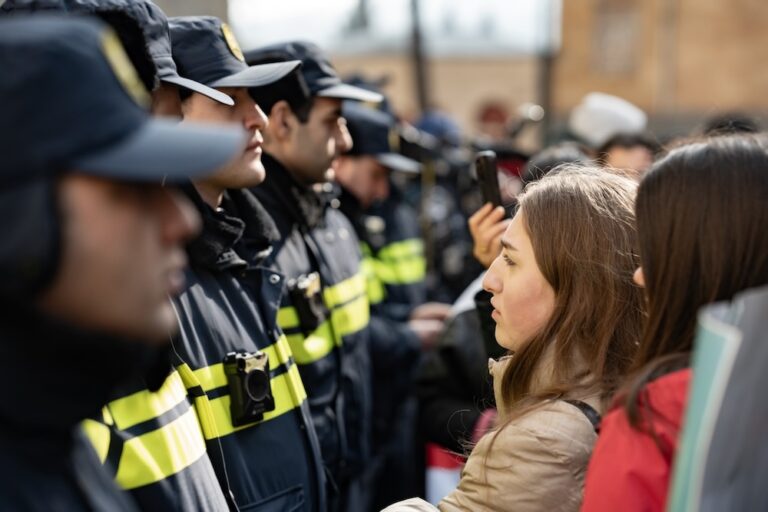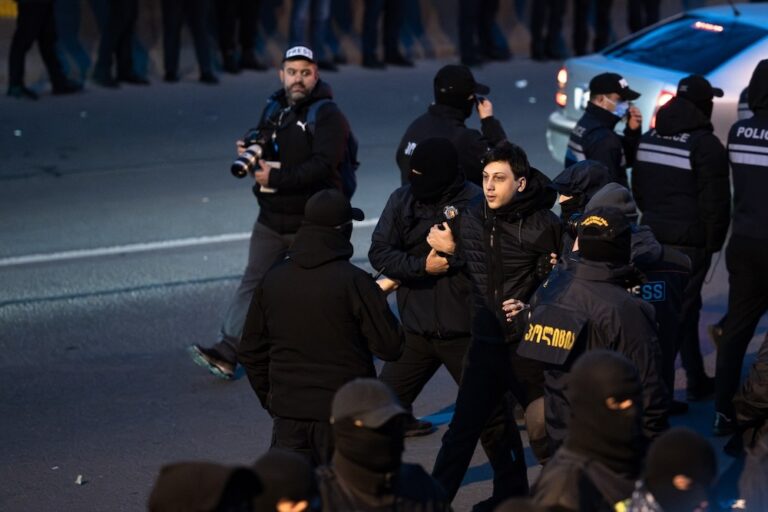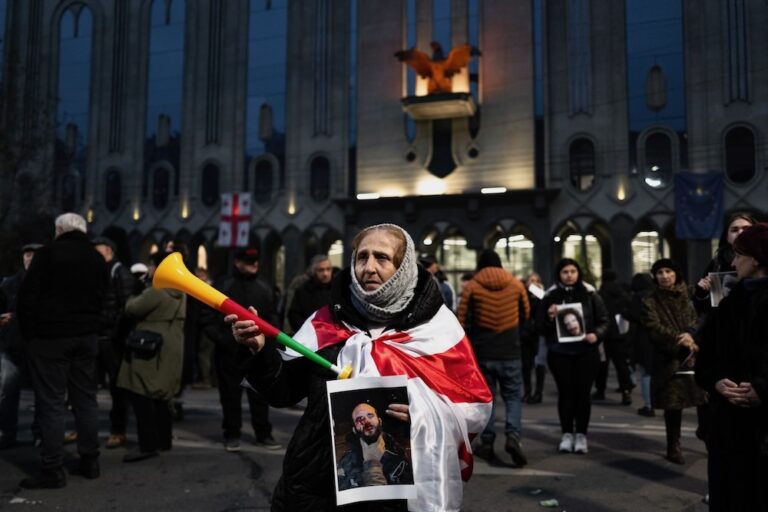"A pattern of harassment and intimidation of activists, independent media, and government critics, if left unpunished, risks emboldening malicious actors to escalate violence in the months before Georgia's upcoming elections" - HRW
This statement was originally published on hrw.org on 20 August 2024.
Investigations falter, accountability needed
Georgian authorities have yet to demonstrate that they are conducting effective investigations into a spate of violent attacks on civic and political activists over recent months, Human Rights Watch said today. Impunity for these attacks risks encouraging further political violence and instability in the run-up to the country’s parliamentary elections in October 2024.
From late April through June, unidentified assailants violently attacked over a dozen activists, leading in many cases to head and other injuries requiring hospitalization. Most attacks were committed by small groups of assailants in public places with witnesses and CCTV cameras nearby. While the police have formally opened investigations in most cases, they have not identified or arrested any suspects, and there are concerning signs that they are not taking the necessary investigative steps to hold those responsible to account.
Many of the survivors had spoken out against the “foreign agent” law, which the ruling Georgian Dream party introduced in parliament in April 2024 and adopted six weeks later. President Salome Zurabishvili vetoed the law, but the ruling party overrode the veto on May 28.
“A pattern of harassment and intimidation of activists, independent media, and government critics, if left unpunished, risks emboldening malicious actors to escalate violence in the months before Georgia’s upcoming elections,” said Hugh Williamson, Europe and Central Asia director at Human Rights Watch. “Accountability for these brutal attacks and threats of violence is urgently needed.”
Human Rights Watch has documented six of these attacks in the capital, Tbilisi, against five people: a university student, a professor, the founder of a youth protest group, a protest participant, and a leading member of Georgia’s largest opposition party. Human Rights Watch interviewed the survivors and their lawyers and reviewed legal filings, medical reports documenting their injuries, and several CCTV videos and other video footage of the attacks that are in the public domain. Human Rights Watch also wrote to the interior minister and the prosecutor general, requesting information about the investigations. The prosecutor’s office replied on August 19 stating that the Interior Ministry is investigating the attacks and that no criminal prosecutions have been initiated thus far.
Georgian human rights groups and media have documented and reported on over a dozen other cases of physical attacks against activists since mid-April. Investigations into those attacks appear to have been slow and largely ineffective.
In the cases Human Rights Watch documented, survivors’ lawyers regularly reached out to investigators, but did not receive any indication that the authorities had identified a suspect in any of the cases. No survivors were asked to come to the station to identify suspects in a line-up or to participate in a face-to-face confrontation with a suspect.
The introduction of the law On Transparency of Foreign Influence led to some of the largest peaceful protests in Georgia in recent decades. There were multiple, credible reports of unjustified police use of violence to disperse them.
The law seeks to marginalize and discredit nongovernmental groups and broadcast media that are critical of the government, requiring those that receive 20 percent or more of their income from foreign sources to register as “organizations serving the interest of a foreign power.”
Georgian Dream party leaders made clear in public statements that they intend the law to be used against groups and media that criticize the government, advocate for lesbian, gay, bisexual, and transgender (LGBT) rights, or engage in other work that irritates the authorities.
Before the law’s final adoption, civic and political activists, including survivors of physical attacks, were targets of an apparently coordinated campaign of harassment and intimidation. They and their family members received repeated threatening and insulting phone calls from unidentified individuals. Smear campaigns of posters featured the images of leaders of nongovernmental groups and critical journalists, calling them traitors and enemies of the state and the church.
Leaders of Georgian Dream, which has led the country since 2012, also implied they would use the foreign influence law against critics in the lead-up to October’s parliamentary vote. The election will be the first in which all seats will be decided by proportional representation, a system in which all seats are allocated based on the percentage of votes each party receives, rather than a mix of individual and party-based mandates.
In an urgent analysis published in May 2024, the Venice Commission, the Council of Europe’s advisory body on constitutional matters, concluded that the restrictions imposed by the law on the rights to freedom of expression, freedom of association, and privacy fail to meet the “requirements of legality, legitimacy, and necessity in a democratic society,” and violate the principles of proportionality and nondiscrimination.
The commission urged the Georgian authorities to repeal the law, “as its fundamental flaws will involve significant negative consequences for the freedoms of association and expression, the right to privacy, the right to participate in public affairs as well as the prohibition of discrimination.”
Georgian authorities should swiftly, thoroughly, and effectively investigate the violent attacks, hold those responsible to account, and publicly and unequivocally denounce politically motivated violence, Human Rights Watch said.
“Impunity for attacks against government critics sends an unmistakable signal that the authorities condone politically motivated violence when it serves their interests,” Williamson said. “The authorities can avoid sending this signal by conducting prompt, thorough, and effective investigations, capable of identifying individual assailants.”
For details about the attacks and the “foreign agents” law, please refer to HRW’s statement.



